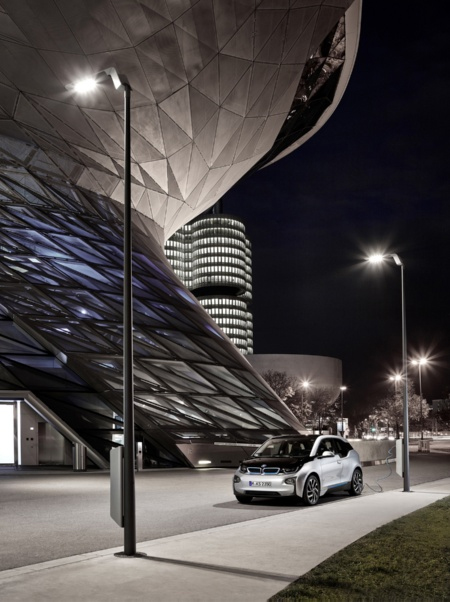Infineon teams up with eluminocity
Munich, Germany – February 27, 2017 – The trend towards urbanization is continuing and it is projected that by 2050 nearly 70 percent of mankind will reside in urban areas. Such demographic changes will impact on a city’s infrastructure, driving requirements for smarter, more secure and energy-efficient solutions. Infineon Technologies AG (FSE: IFX / OTCQX: IFNNY) and eluminocity GmbH have jointly developed an intelligent streetlight to tackle these requirements. In promoting e-mobility, helping to save energy and enabling a connected infrastructure, the streetlight can serve as the backbone for the city of the future.
“Semiconductors are the key to making the urban infrastructure intelligent. Together with our partners we can offer a secured platform with scalable sensor hub, data processing and connectivity,” said Andreas Urschitz, President of Power Management & Multimarket Division at Infineon. “Our solution leverages existing cellular infrastructure and can support the evolution towards 5G deployment.”
“The behavior and needs of city dwellers will rapidly advance due to digitization. For this reason our hard- and software updates make the streetlight future-proof,” added Sebastian Jagsch, CEO and founder of eluminocity. “The intelligent streetlight can accommodate new sensors as well as new components for mobile communications. This enables us to constantly develop new applications to tackle upcoming demands. We enhance comfort, safety, security, and efficiency in public spaces, thus making whole cities future-proof.”
 Securely connected for energy saving
Securely connected for energy saving
Each of the companies contributes specific know-how to the partnership for the connected city. Infineon provides decades of expertise in the field of sensors, power management chips, and security solutions. eluminocity adds its know-how in system integration, data analysis and application solutions. Other partners deliver connectivity, computing performance and cloud solutions. The intelligent streetlight can be protected against unauthorized access from the cloud down to the device level and can be enabled for updating by means of hardware and software.
Through the use of LEDs, the intelligent streetlight saves energy directly. Around 19 percent of the world’s electricity consumption is generated by lighting, of which about 80 percent is used in professional applications such as street lighting. Approximately nine million of the so-called light points installed in Germany consume about 4,000 GWh of electricity per year. Replacing streetlights with LEDs could save more than half of that electricity – enough to supply about 630,000 two-person households for a whole year.
Improved air quality is at hand thanks to an integrated charging station for electric vehicles, which ensures that a charging infrastructure can be easily built in residential areas. The result would be to boost electromobility, a key benefit given that it is estimated that 37 percent of Germans would be more enthusiastic about electromobility if there were more charging stations. Furthermore, the streetlight could be equipped with parking spot detection sensors. Feeding information about the availability of vacant parking spaces to the cloud will create the basis for an intelligent traffic management system. This could simplify the search for parking lots – a task that experts believe is responsible for every third moving vehicle in cities.
Thanks to integrated radar sensors, the intelligent streetlight can also be configured to adapt to environmental conditions. For instance, if the weather is bad or when cars or pedestrians are approaching then brightness can increase. This not only improves comfort levels for road users but also enhances their safety. Data from the radar system is collected anonymously and forwarded to the cloud, with secure processing using end-to-end encryption. This facilitates various services that can be offered in the form of apps.
Designed to meet future requirements: environmental sensors and 5G base station
The streetlight also provides an option to be equipped with additional sensors that analyze the environment. Gas sensors can be integrated to measure air quality and report when defined limits are exceeded via a cloud connection to a municipal control center. This capability would, for example, allow joggers to know when to expect the best air quality in the city. The addition of microphones supports detection of certain audio patterns, enabling the automatic reporting of incidents such as car accidents to the nearest police station.
Equipped with high-frequency components, the streetlight may also serve as a base station for communications based on the 5G mobile radio standard. Compared to the previous standard, this requires more transmitting and receiving units, but offers a hundred times higher transmission speed, a thousand times higher data capacity, real-time capability – and a lower energy consumption.






